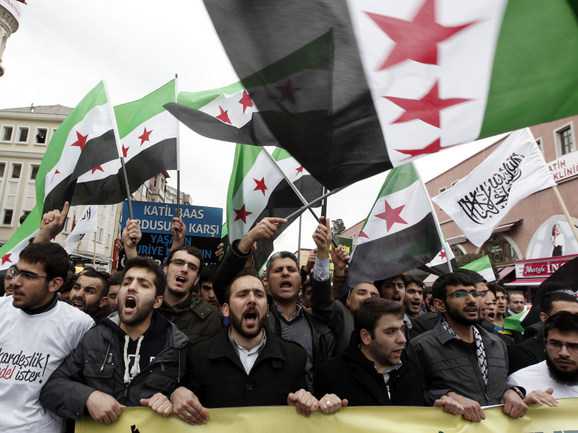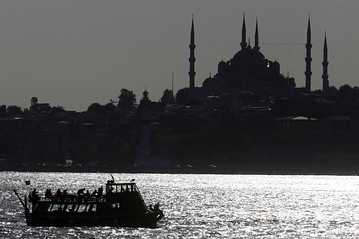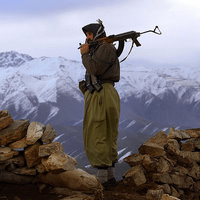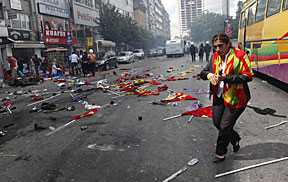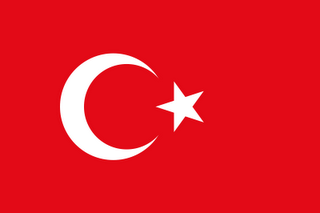The Kurdish Globe

Turkey plays a dual game with Syrian Kurds. What we want from Turkey is to look at the Syrian opposition parties equally.
Dr. Radwan Badini, an independent Syrian Kurdish politician and intellectual, participated in both of the Syrian opposition meetings in Turkey, as the representative of Kurdish opposition. He was in Antalya on June 1 and in Istanbul on July 16. In an interview with the Globe, Dr. Badini discusses issues regarding Syria and its future.
Globe: You participated in both of the Syrian opposition meetings in Turkey, what was the difference between the Istanbul and Antalya meeting?
Dr. Badini: At the Istanbul meeting, the Syrian Muslim Brotherhood Party had a larger presence; they wanted to show their power and be recognized inside Syria and internationally. As Kurds, we don’t mind sitting with the Muslim Brotherhood, but we have conditions and limits. We insist that Kurds in Syria are not a minority, they are one of the main nations, and we want the Kurdish rights to be written in the new Syrian constitution. Right now, the level of understanding between Kurds and the Muslim Brotherhood is positive.
Globe: Is the Muslim Brotherhood considered the most powerful Syrian opposition party?
Dr. Badini: No, but among the traditional Syrian opposition parties, the Muslim Brotherhood is considered the strongest. Moreover, the Muslim Brotherhood is the most experienced Syrian opposition.
Globe: Which opposition parties are strong?
Dr. Badini: There are no strong Syrian opposition parties because for more than 45 years the Syrian regime has monopolized power in the country and never let any political party beside Baath Party (the ruling party) practice or even breathe. In the meantime, the Kurdish opposition is the most organized opposition in Syria.
Globe: There were reports that Turkey did not invite Kurdish parities to participate in the opposition meetings. Is this true?
Dr. Badini: Turkey plays a dual game with Syrian Kurds. What we want from Turkey is to look at the Syrian opposition parties equally. We respect what (Turkish Prime Minister) Erdogan has done recently to improve the Kurdish rights in Turkish Kurdistan. Turkey is a neighbor to Syrian Kurdistan, and Syrian Kurdistan has a strategic place for Turkey because it is one of the main gateways to Arab countries. With Turkey, we can be strategic partners based on bilateral interests. Around 15 percent of Syria’s population is Kurdish, and the size of Syrian Kurdistan is more than 30,000 square kilometers — the same size as Israel.
Globe: What was the level of Turkey’s role in the Syrian opposition meetings?
Dr. Badini: Well, only the blind people cannot see Turkey’s role. The meetings were organized by Turkey and behind the curtain; they (Turkey) were playing an important role. As the Syrian opposition, we visited Germany, Russia and the United States, but everybody showing us the route to Turkey.
Globe: Do you think the European countries and the U.S. are slow in supporting the Syrian opposition?
Dr. Badini: The U.S. is busy with other countries such as Afghanistan and Iraq. Regarding European countries, among them there are different points of view regarding how to deal with Syria, as you can see their different opinions on Libya. However, the European countries told us: “If you want us to interfere, first go and convince the Arab countries.”
Globe: How do you describe the situation of Syrian President Bashar al-Assad?
Dr. Badini: I see him as a sick man, dying in bed. He and his regime are over. His regime sent a telegram to the meeting, asking the Syrian opposition for dialogue. We rejected it because we believe what the regime is asking is only monologue, not dialogue.
Globe: Four months of violent protests and the international community still has not made any move to support the protesters. Do you think the Syrian protestors are becoming impatient?
Dr. Badini: I believe the job inside the country has been done — the regime has been destroyed. Now it is the international community’s turn to take a step.
Globe: The Syrian regime is talking about possible civil war in Syria, civil war among ethnic groups. Is it true or it is just the regime’s propaganda?
Dr. Badini: it is just the regime’s propaganda. In Homs, the regime made a rouse by killing Allawis (Shiite ethnic group), blamed it on the Sunnis and then killed some Sunnis and blamed it on the Allawi.
Globe: How do you describe the current situation of Kurdish areas in Syria?
Dr. Badini: They are living in extreme poverty. For several years there have been droughts in the Kurdish areas, and many Kurdish families moved to the big cities, leaving their villages. No Kurd has faith in the Syrian regime; they believe the only solution is to topple the regime. They are hopeful and enthusiastic; they believe the regime will be over soon.
All Kurdish Syrian parties need to hold a conference soon to better organize ourselves and have one voice when it comes to the Kurdish issue in Syria.
via KurdishGlobe- “Inside the country, the job has been done – the regime has been destroyed”.

